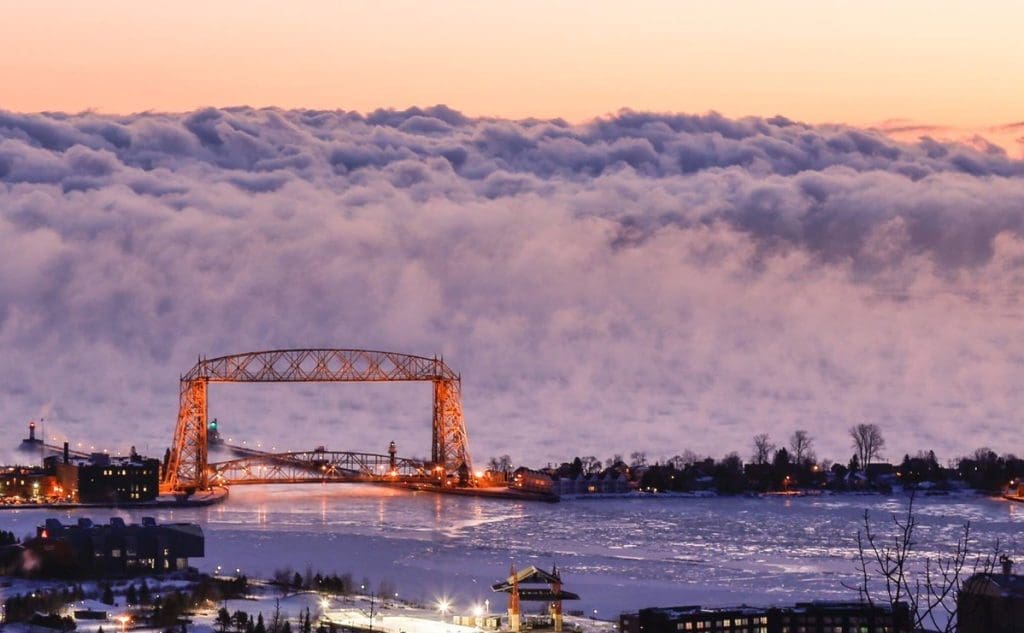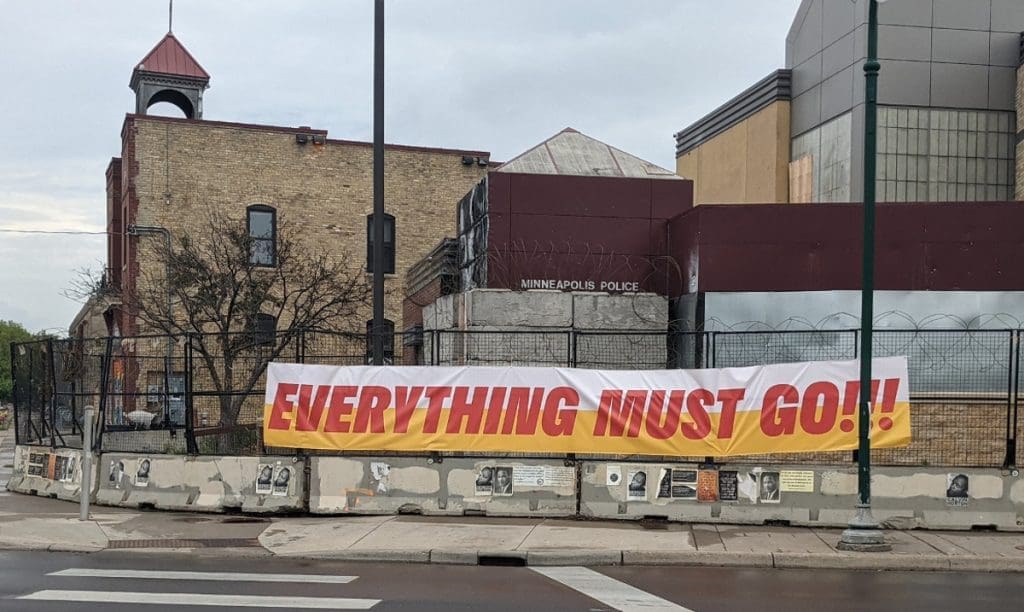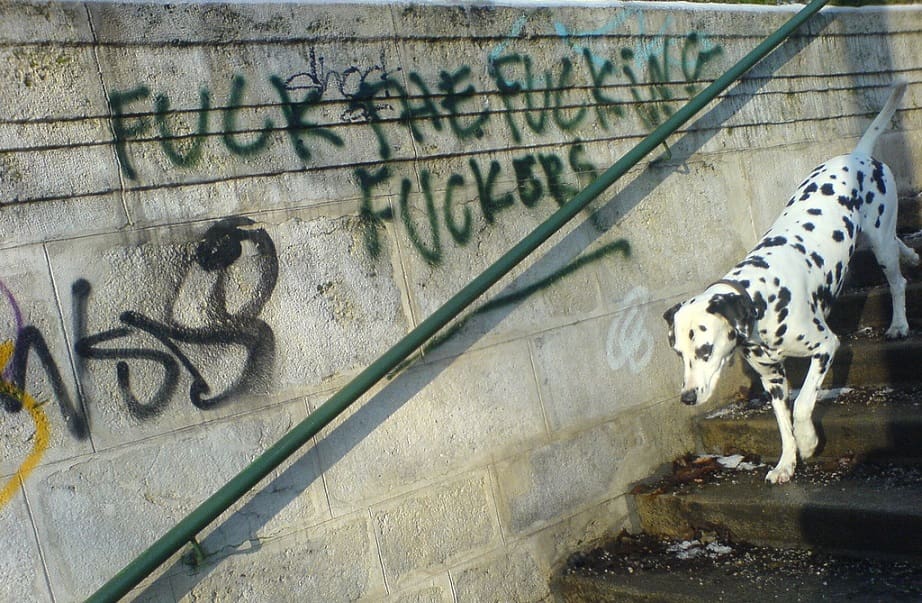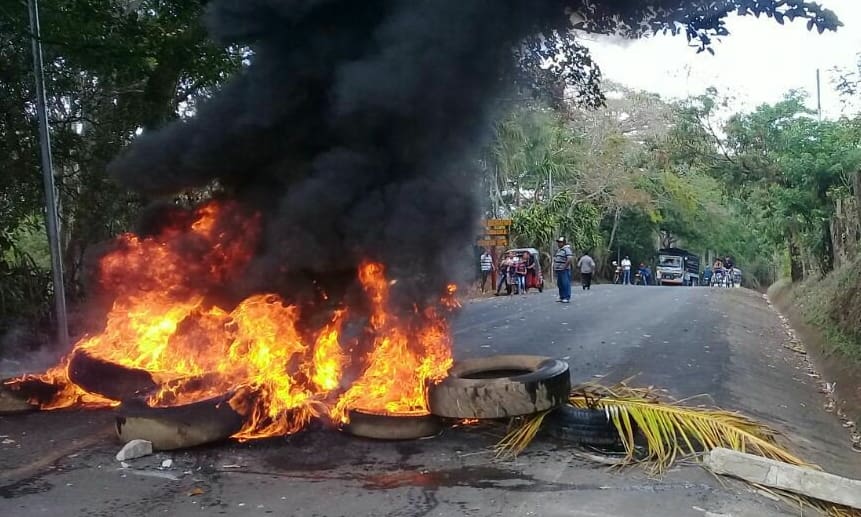Transcribed from the 24 February 2018 episode of This is Hell! Radio (Chicago) and printed with permission. Edited for space and readability. Listen to the whole interview:
Some people on this planet have no choice but to realize that they are caught up in a war.
Chuck Mertz: We have cut ourselves off from nature. So is it any wonder that climate change is not the top news story or our politicians’ number one concern? Yes, something still can be done about climate change, but it’s going to take a radical transformation right now. It doesn’t look like the world, or at least the United States, is up to it.
Here to get us caught up on the state of climate change, Andreas Malm is author of The Progress of This Storm: Nature and Society in a Warming World. Welcome back to This is Hell!, Andreas.
Andreas Malm: Thank you so much, Chuck, it’s great to be with you again.
CM: You write, “We continue to live on a stage where there is nothing but the present. Past and future alike have dissolved into a perpetual now, leaving us imprisoned in a moment without links backwards or forwards. Only the dimension of space extends in all directions across the seamless surface of a globalized world in which everyone is connected to everyone else through uncountable threads. But time has ceased flowing.”
What do you mean by time having ceased flowing? Has it ceased flowing just recently? Did something happen? Is this unique in human history?
AM: This is a retelling of a diagnosis of the so-called postmodern condition. It’s not really my analysis, it’s one developed by Fredric Jameson, the American cultural theorist. But it pinpoints a certain path of logic that is most visible today in the way that people interact with technology, their smartphones: the way that people are glued to their screens and caught up in a perpetual flow of information that they can access simply by swiping the screen or touching a button.
This makes for a mindset where space extends in all directions in the sense that you can access anything instantly, but there is precious little integrated into any kind of history with a deep past and a deep future, and a strange way of isolating oneself from the biosphere and locking oneself into a cloister of digital life—virtual life, as it were—precisely at the moment when we need to be more closely attuned to what’s going on in physical nature, and to extend our attention spans to long term processes such as climate change playing out for the next thousands of years, depending on what we do now.
It’s a cultural paradox that precisely when we need to be more integrated into our material environment and more attentive to the very long term consequences of our daily actions, we are caught up in this extreme fragmentation of the attention span in the cybersphere, in the augmented reality of our digital lives.
CM: You write about how we are already experiencing climate change, but there are people who are still in climate change denial, or think it’s coming in the distant future. You write, “The experience is becoming well-nigh universal: a majority of the human population has been exposed to abnormally warm weather over the past decade. Such man-made weather, however, is never made in the present.”
Why don’t we perceive man-made weather being made in the present? Why don’t we see the impact that we are having right now?
AM: The perception of climate change is very different among different groups of people and in different places. It depends on the position one has in the world economy and how one’s daily life is linked to fossil fuels, and also on ideological perception. For instance, it has been demonstrated again and again that people who are deeply invested in conservative ideology and climate denialism have such strong blinders that they fail to adapt their views even to actual personal experience of weather shocks.
In the US, for instance, you’ve had innumerable cases of climate-related shocks over past years, but some people are capable of absorbing these shocks into their perception that there is no global warming, that these are just natural fluctuations. This is because of certain psychological mechanisms that are extremely strong among some people. And it’s not only a phenomenon in the US; it’s very much a phenomenon here in Europe nowadays as well. We have seen the rise of a far right that often denies climate change is a problem that we need to do anything about, even though Europeans are experiencing more and more climate impacts.
On the other hand, some people on this planet have no choice but to realize that they are caught up in a war. For instance, I was in the island of Dominica last August. Three weeks after I got home, hurricane Maria crashed into that island and completely erased the whole island—destroyed all of the infrastructure and cut off the forest cover in one blow. And the people of Dominica have developed an almost martial mentality or discourse, where they see themselves as caught up in a war against climate change, and fighting for their very survival as people and as a nation. So on some parts of the globe, there are poor people directly getting their lives destroyed by climate change, and they have a very keen idea of what’s going on.
But the perceptions of global warming are very much differentiated according to social position and to ideology.
CM: You write, “When early twentieth century philosopher Walter Benjamin roamed the cities of interwar Europe, he jotted down a signpost for further investigation, and it read, ‘On the double meaning of the temps‘ [as in weather and time]. Most likely the semantic overlap is rooted in the primordial experience of the seasonal cycle drawing the calendar of labor: the olden days when sun, cloud, rain, and snow set the rhythm of hunting, sowing, reaping, and all sorts of other activities.”
What do you think happens when weather no longer works like clockwork, when time and weather become disconnected?
AM: There’s a new connection between time and weather, because when there are extreme weather events that are linked to climate change, they are the result of past combustion of fossil fuels. To take once again the example of the Caribbean hurricanes that struck islands such as Dominica, they were the result of all the greenhouse gases that have built up in the atmosphere over a couple of centuries. Extreme weather today is linked to a particular history of burning fossil fuels. When that history erupts into the present, it creates a new kind of relation to time. History falls in on the present, so to speak, precisely because the climatic events that we experience wouldn’t physically have happened if it were not for the two centuries of ever-deeper investment in the fossil economy.
Renewable energy sectors around the world are growing, but at the same time there is the continued expansion of fossil fuel infrastructure too. As long as that happens, it doesn’t matter how many solar panels we put up or how many wind farms we build. We have to completely shift from the one energy source to the other.
This is also what we’re referring to when we say that soon it will be “too late.” If we continue to build up greenhouse gases in the atmosphere at this rate, we’ll experience climatic shocks that we will be unable to deal with in a reasonable way. In that sense, the past is always catching up on us in a warming world. We get chained to a past that we cannot alter, because it’s the past.
But that is also a reason to investigate that history and see what has brought us into this warming place—how we got caught up in this mess over the past centuries and what we can do about it before it really is too late. And it’s becoming later by the hour. That’s the very special temporality of climate change. The more greenhouse gases there are out in the atmosphere, the more severe the impacts will be.
CM: You were talking about the response by the citizenry in Dominica, reacting to climate change as a war that was taking place. You write, “We should conclude that building a new coal-fired power plant, or continuing to operate an old one, or drilling for oil, or expanding an airport, or planning for a highway is now irrational violence.”
If we view such developments as irrational violence, how differently would we address such developments? Would we change to a point of view that people of Dominica have, where we would react to this as a war? And is that a good strategy for combating climate change?
AM: I do think that the war analogy makes sense. Many people have drawn parallels from the current emergency to the emergency faced by the United States with the outbreak of the Second World War, when all the nation’s resources were directed towards one single goal, namely defeating the enemy. That required that the state take some very radical control over the economy and, for instance, ordered car companies to cease producing private cars and only produce tanks and other war materiel. We’re in a similar moment in the sense that we are facing an emergency, and it isn’t a war that we can pin to an alien entity such as Nazi Germany, but it’s an emergency that we as a planetary community, as human kind as a whole, are facing. It requires dramatic measures similar to the ones in the war emergency of the Second World War.
That would mean that governments start to make some tough decisions. For a start, a moratorium on new coal-fired power plants or oil platforms or pipelines, and then some very stringent regulations and decisions for how to shift completely from fossil fuels to renewable energy in a very short period of time. What we’re seeing now is that the renewable energy sectors around the world are growing, but at the same time there are additional airports, there are new pipelines, there is the continued expansion of fossil fuel infrastructure around the world too. As long as that happens, it doesn’t matter how many solar panels we put up or how many wind farms we build. We have to completely shift from the one energy source to the other.
I don’t see any other agent other than state governments that can actually make emergency decisions about what is required. The only viable alternative, as far as I am aware, is some kind of geoengineering, which means that states would have to intervene not in the economic system but in the climate system by injecting soot into the atmosphere (or something like that) to cool the planet. But because it’s so late, and because so much has been damaged and so much has been burned, the only entity that can potentially mitigate the disaster is the state in what amounts to a war scenario.
CM: Here in the United States, we’re raised to believe that the market will solve everything. If there is such high global demand for a fight against climate change, then why can’t we expect or depend upon the private sector to fulfill that demand for a fight against climate change? Why do we have to look toward the state? Why can’t we look toward the private sector?
AM: Because there are a few people in the private sector who make a lot of money from digging up fossil fuels and burning them, or selling them to others to burn. It’s quite clear from the current situation in the US that these are very powerful corporations and public figures, and they are well-represented in the Trump government. These are people who profit enormously from the consumption of fossil fuels and who will do all they can to defend and prolong the fossil economy, because their whole business model is to take oil and coal and gas out of the ground and sell it on the market to have it burned.
If we terminate the production of fossil fuels, that would mean retiring an enormous amount of investment, and prematurely liquidating all the capital that is sunk into those assets, such as oil terminals, power plants burning coal, or coal mines. If we were to close all of these things, some people would lose an enormous amount of money, namely the owners of these assets. Therefore they are doing all they can to fight back against the demand for a transition away from fossil fuels.
That is how the real, actual market works.
To speak metaphorically, a war against the past might be required to stabilize the climate on this Earth. That’s a task that we’ll have to work on for a long time—decades, perhaps even centuries
CM: You mention E. Ann Kaplan’s study Climate Trauma: Foreseeing the Future in Dystopian Film and Fiction. You write, “Kaplan tells a story of how she herself was caught up in hurricane Sandy and at one point, as she tried to return to her apartment by climbing dark stairs, suffered a panic attack. The experience led her to develop the syndrome of pre-trauma: not the usual post-traumatic stress disorder in which people suffer from past wounds, but rather fear of a future terrifying event of a similar kind. Our culture as a whole, Kaplan suggests, is now developing pre-trauma, with more and more film, television, literature, and journalism inflicted by the creeping insight that catastrophic climate change is approaching. Consumers of popular culture make up a pre-traumatized population living with a sense of an uncertain future and an unreliable natural environment.”
How much do you see society acting as if it has pre-trauma when it comes to looming climate change? Are we not addressing climate change as much as we should be because of suffering from pre-traumatic stress disorder?
AM: Kaplan’s point is that we should take pre-trauma seriously and that perhaps we suffer from it more than we know. If we look at popular culture these days, it’s absolutely suffused with the theme of the end of days, of earth in crisis—particularly if we look at films, from The Day After Tomorrow to Interstellar to Elysium, it’s an endless stream of films portraying the collapse of the Earth as we know it.
This is, according to Kaplan, a kind of cultural processing of our predicament. Most of us know on some level of our consciousness that we are in dire straits, that we’re facing the prospect of a breakdown in the Earth climate system’s basic functioning, and this vague fear is expressed in those films about apocalypse. Kaplan’s argument is that we should take those films seriously, face up to our predicament, and feel a bit of panic—because it’s rational to do so when you’re facing severe danger. And also that we should act on that panic, not just fantasize about it or imagine the outcomes—what the world will look like when the sea has risen by so many inches or the desert has expanded, as fiction and film are quite skilled at doing—but also act purposefully and politically on the insights that we have gotten from climate science about what we’re facing.
CM: You write, “Permanent connectivity enacts the final capitalist mirage of post-history. As Jonathan Crary writes in his searing 24/7: Late Capitalism and the Ends of Sleep, it is the consummation of a homogeneous present, a space where the past has been erased and everything can be accessed on demand, in an instant. Not only does it negate natural rhythms such as the need for sleep, it also offers a cloister away from the temps.”
Then you quote Crary writing, “The more one identifies with the insubstantial electronic surrogates for the physical self, the more one seems to conjure an exemption from the biocide underway everywhere on the planet.” And you add, “The more one withdraws into the virtual cocoon, the more one detaches from things taking place in nature.”
Have we created a virtual world that works as some sort of buffer between us and nature, between us and climate change? And to what extent, then, have we already accepted accepted climate change? Even those who are in denial—is denial itself a form of accepting climate change?
AM: I think so. Lots of people who explicitly deny climate change are on some subconscious level aware of the its existence. But that’s also a more general predicament in our societies. It doesn’t require explicit denial of climate science for that to happen. In most countries, including my own, in Sweden, people know about climate change and accept the science, but go on living as though nothing in particular were happening.
Living in denial is a very common predicament right now, and it makes it very much more difficult to do anything about climate change. What’s needed is a mass movement, a mass awakening, some kind of facing up to reality.
CM: We’ve been talking about how we’ve cut ourselves off from nature and how we have even cut ourselves off from a sense of time. You write, “History has sprung alive through a nature that has done likewise. We are only in the very early stages, but already our daily life, our psychic experience, our cultural responses, even our politics show signs of being sucked back by planetary forces into the hole of time. With the present dissolving into past and future alike, post-modernity seems to be visited by its antithesis, a condition of time and nature conquering ever more space. Call it the warming condition.”
How will nature and time be different, even reassert themselves during “the warming condition”? And how well do you think we’ll be able to adapt to the warming condition?
AM: The worst case scenario is the warming condition just accelerates and we get two or three or six degrees of warming, and in that case the various parts of the Earth system will start to break down, and the natural consequences that will play out will be of such magnitude that we cannot meaningfully adapt to them. If that happens, then we really are caught up in a past that we can’t do anything about.
I don’t believe that this is a destiny that is predetermined and inevitable. There is still significant space for action. We can cut fossil fuel consumption, and we can cut CO² emissions to near zero over the next few decades, preferably before the middle of the century, and possibly we could move towards negative emissions, where we actually start to undo some of the damages from the past by taking carbon dioxide out of the atmosphere and reinserting it underground. That might require some advanced technologies that are very uncertain, but it’s that kind of war against the past—to speak metaphorically—that might be required to stabilize the climate on this Earth. That’s a task that we’ll have to work on for a long time—decades, perhaps even centuries—before we return to a stable planet.
We need a much more humble attitude towards the rest of nature and to desist from extreme domination of nature. Fossil fuels are really all about dominating nature. A shift to renewable energy would require more humility, more adaptation to natural forces, and learning to live with nature as it is, not as we—or rather, as capital—wants it to be. At the end of a transition away from fossil fuels, we will come out with a different relationship to nature.
It’s hard to see how we can do anything less than strive for stabilization of the climate, because we know that a complete destabilization of the climate is not compatible with continued organized human life on this planet.
CM: You write, “Any theory for the warming condition should have the struggle to stabilize climate—with the demolition of the fossil economy as the necessary first step—as it’s practical, if only ideal, point of reference. It should clear up space for action and resistance.”
If anything, though, destroying the fossil fuel economy is viewed as impractical. That is, there has got to be a way to both address climate change and not have an impact on our economy. Why do you see ending the fossil economy as practical in the face of climate change?
AM: It’s practical in the sense that we have the known, proven, existing technologies required to get away from fossil fuels. We have renewable energy, and it works better by the day. It’s becoming cheaper by the day. It’s technically feasible to shift completely away from fossil fuels. It has been demonstrated again and again that the world economy can be powered solely by wind and sun and some addition of thermal and water power. Although no one really believes in massive expansion of water power any longer, those other forms of renewable energy are capable of a massive expansion that could replace fossil fuels.
That can be done without any serious harm to the Earth system, unlike geoengineering in its more radical forms (such as solar radiation management, where we would try to reduce the amount of incoming sunlight to the planet, to cool it down). These technologies come with threats of very problematic consequences, and therefore shouldn’t be deemed realistic.
Unfortunately, nowadays many politicians more or less count on such technologies saving us in the future, because they aren’t courageous enough, or they don’t feel that they have the mandate, or they’re not being pushed to actually intervene in the capitalist economy and force it onto another track. That’s the ultimate taboo in these times, and therefore politicians prefer to hope that some future technology will save us, even when it’s unproven and potentially very dangerous.
CM: How much has the commodification of nature created climate change? You write, “More specifically, the theoretical obliteration of nature mimics the practical attempts by capital to subsume it under the law of value. Indeed, as many anti-constructionists have argued, it is the latter that makes the former even plausible. Only in a society that strives to turn every bit of nature into profit can the idea that nature has no independent existence take root.”
So can climate change be addressed without considering and reexamining the idea of commodification of nature?
AM: Maybe at the end of the process. It will have to include a break with the idea of nature as a commodity that we can control and optimize for our use. We need a much more humble attitude towards the rest of nature and to desist from extreme domination of nature. Fossil fuels are really all about dominating nature, about using a type of energy that seems to fit our purposes and that we can control in time and space. A shift to renewable energy—as Naomi Klein and others have pointed out—would require more humility, more adaptation to natural forces, and learning to live with nature as it is, not as we—or rather, as capital—wants it to be.
At the end of a transition away from fossil fuels, we will come out with a different relationship to nature.
CM: You write, “In Climate Crisis: Psychoanalysis and Radical Ethics, Donna M. Orange chases the ghosts of colonial history that haunt this global warming world, and suggests that an unprocessed history of enslaving others primes white people to callousness.” And you quote Orange writing, “Blindness to our ancestors’ crimes and to the way we whites continue to live from those crimes keeps the suffering of those already exposed to the devastation of climate crisis impossible for us to see or feel.”
How much is climate change the result of white supremacy? How much do whites keep denying climate change because they cannot admit that the cost of their privilege has been the environment, if not the planet?
AM: It is a crucial link. The fossil economy as it evolved in the nineteenth century rested on white supremacy, in the sense that it was the invention of Englishmen and other western Europeans, who, with force, imposed this invention on others: they brought coal and steam and related technologies to Egypt and Nigeria and China, against the will, largely, of the people of those countries—and used those technologies to enrich themselves. And they were quite explicit about it. If you read the British literature on steam power, for instance, you will find many references to the power that steam gives “us” to destroy the rabble of the world and to take all that “we” need from the interior of the African continent or the Indian subcontinent. So there’s a very clear historical link between racial capitalism and the use of fossil fuels on a large scale.
Any serious mitigation policy will inevitably clash with capitalist interests. Whether that clash leads to complete abolition of capitalism I will leave unsaid; perhaps it’s not necessary. But some capital will definitely have to be taken out—most obviously the kind of capital that profits immediately from the combustion of fossil fuels.
That’s one part of the picture. Another part of the picture is the fact that most people who today suffer serious losses due to climate change are people of color around the world. White people who are fairly affluent in Europe and the United States are shielded, largely, from the consequences of climate change. So there is a color gradation to the problem.
The surge in support for the far right is related to this, and will be more related to this in the future, because we can easily see scenarios where lots of people of color move towards, let’s say, Europe, because their homelands have been rendered uninhabitable by climate change. There are white populations in Europe who are deeply influenced by xenophobia, not the least Islamophobia. What will happen the day we see movements of people on a completely different magnitude than what we saw in 2015, when people in Europe freaked out about a so-called refugee crisis? Since then we’ve seen continued growth in support for the far right.
Will white, relatively privileged people in Europe open up their countries to climate refugees? Or will they try to defend their borders and keep people out, to enjoy their privileges? I think that’s a question we will have to deal with in the relatively near future.
CM: You write, “The warming condition spells the death of affirmative politics. Negativity is our only chance now.” Why does climate change affirmative politics? What does negativity offer that affirmation does not?
AM: In very concrete terms, we need to destroy things. We need to stop things. We need to not affirm things like coal-fired power plants or accelerate auto-mobility. We need to terminate those things. That’s the element of negativity. There is no way that we can get out of the warming condition or prevent climate breakdown without negatively destroying and terminating things that are dangerous.
CM: You write, “Some on the left maintain that progressives should not stoke panic; they ought to be less catastrophist and apocalyptic. But if we accept the principles of climate realism and stay up to date with the science, the boot is entirely on the other foot. Psychoanalyst and philosopher Donna Orange points to the classic psychoanalytical embarrassment of Sigmund Freud himself, who refused to see Nazi annexation coming and only escaped Vienna at the very last moment, leaving several family members to perish.”
Then you quote Orange again, writing, “The parallel with our climate emergency is clear. When we cannot panic appropriately, we cannot take fittingly radical action.” How much, then, does the radical action we need depend upon panic and fear?
AM: To be honest, I don’t think panic and fear are really the most productive emotions here. I think climate anger should be the prime emotion of our days. We need more anger. It’s fairly well known in psychology that the emotion most conducive to action isn’t fear or panic but it is anger. There are many reasons to be angry. There are reasons to be angry with the fact that oil corporations continue to profit enormously, horrendously, from delivering more fuel to the fire. There is reason to be angry about how much power oil corporations have in this world, notably in the US. There is reason to be angry about Swedish politicians expanding airports and building new highways when we need to do exactly the opposite. That is the emotional force with the greatest potential to change things.
If such anger is also combined with panic, then sure. But what we need most is indignation at the top.
CM: One last question for you, Andreas, and as always our final question is the Question from Hell: the question we hate to ask, you might hate to answer or our audience is going to hate your response.
Can we end climate change, can we effectively address climate change and still be capitalist?
AM: To be honest, I hope so. Because it’s very difficult to abolish capitalism. It has proven exceedingly hard over the past two centuries. So I hope, given what little time we have, that it’s possible to address climate change without getting rid of capitalism altogether. But I do think that any serious mitigation policy will inevitably clash with capitalist interests. Whether that clash leads to complete abolition of capitalism I will leave unsaid; perhaps it’s not necessary. But some capital will definitely have to be taken out—most obviously the kind of fossil capital that profits immediately from the combustion of fossil fuels.
Any sensible climate politics contains anti-capitalist elements, and that’s why it’s so hard to progress on this issue.
CM: Andreas, a pleasure again to have you back on This is Hell!.
AM: Thank you so much, Chuck.
Featured image: “Sea smoke” over Gichigami, Turtle Island, 2016.





